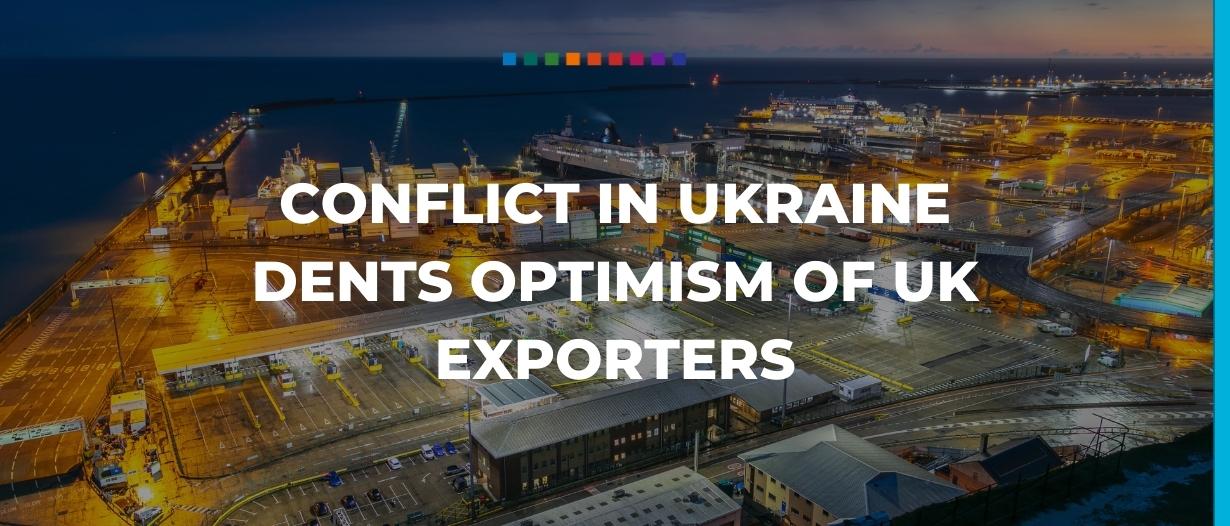UK exporters are the least optimistic in Europe due to a combination of uncertainty caused by Brexit, the conflict in Ukraine, and disrupted supply chains, according to Allianz Trade.
This reduces growth ambitions and increases fears of non-payment and late payments.
The first annual Allianz Trade Global Survey highlights that 60% of UK exporters expect geopolitical concerns to become more challenging in 2022, higher than the share in France (40%), Germany (44%), and Italy (58%).
Indeed, 50% of the UK exporters surveyed see sanctions on Russia as a source of concern that will provide a challenge to their business.
Of six countries in the research (the USA, China, France, Italy, the UK, and Germany), the UK had the highest concern for declining export turnover, with 19% expecting a decline, up from 11% before the outset of the Ukraine conflict.
Exporters in the UK were also the most concerned about the impact of the conflict on their domestic economy, and 39% of UK companies expect Brexit to become more of a challenge for export performance in 2022.
“Even if Russia and Ukraine are not key final markets for European exporters, the conflict is affecting global trade indirectly – through supply chains, raw material, and energy – weighing on export opportunities for firms,” Ana Boata, global head of economic research at Allianz Trade, said.
“We expect global trade growth to moderate by at least -2% in 2022 to +4% in volume terms, just below its long-term average.”
Energy price concerns rising
Prior to the conflict breaking out, UK companies were the most concerned about high energy prices out of all the countries in the survey.
They are now the second most concerned: 62% expect energy prices to become more of a challenge in 2022 (compared to 47% pre-conflict).
Overall, the share of European corporates that expect high energy prices to become more of a challenge has also increased from 40% to 56%, with the countries that are most dependent on imports of gas being particularly concerned: Italy (66% compared to 46% pre-conflict) and Germany (52% against 34% pre-conflict).
France has the lowest share of companies concerned by high energy prices (46% vs. 37% pre-conflict), which likely reflects the implementation of the government’s “Resilience Plan” that takes into account the cost of the energy bill for most corporates.
“Business leaders are facing increasingly complex decisions on two fronts,” Sarah Murrow, CEO of Allianz Trade UK and Ireland, said.
“First, around managing disrupted supply chains, increased input costs and fulfilling orders profitably.
“Second, a heightened fear of delayed or non-payment further along their supply chains as their own customers battle with the same issues. It will pay to be cautious about open credit terms.
“We’re already seeing an uptick in business failures from the historic lows of the past two years.”
Following the invasion of Ukraine, more than 40% of European exporters now expect payment terms to lengthen in the next six to twelve months.
Today, 47% of UK exporters expect longer payment terms, compared to just 22% pre-invasion.
Conversely, the number of exporters expecting payment terms to remain stable this year has plummeted to 48% of respondents compared to 72% pre-invasion.
Concern for non-payment risk growing
Non-payment risk has become a bigger concern for UK exporters in 2022.
Pre-invasion just 22% of exporters expected non-payment issues to rise this year, a number that has risen to 53% of respondents.
It’s the same story across European export sectors.
Fear of non-payment becoming a significant risk has increased from 26% to 71% in construction and from 19% to 80% in agriculture and food.





























